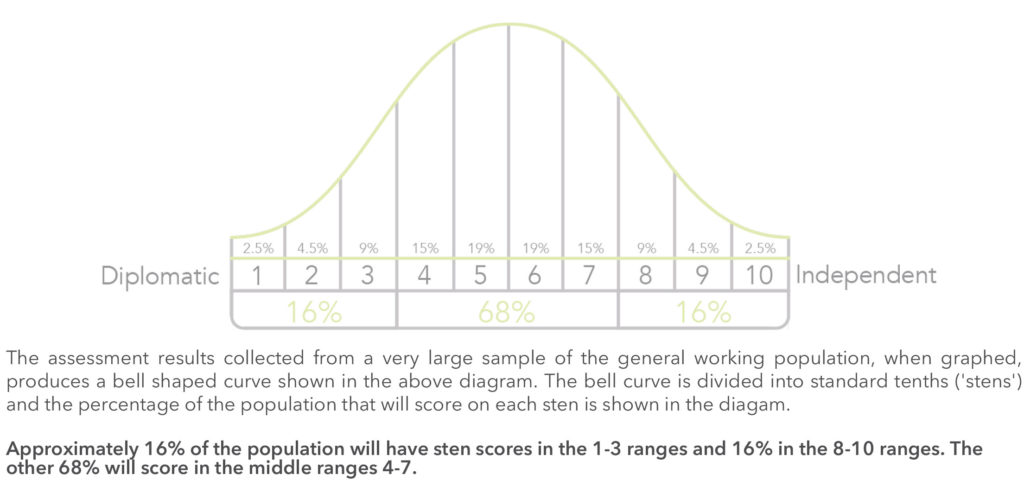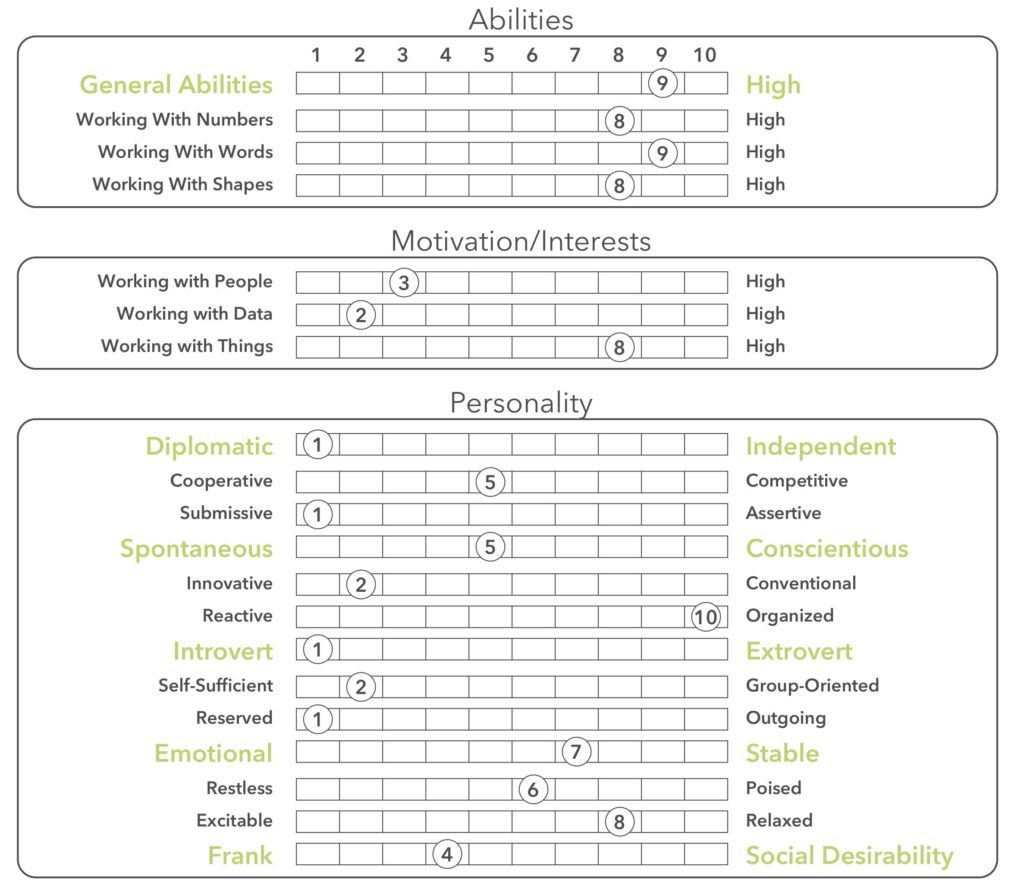Prevue Scale Descriptions
When a large number of people take the Prevue Assessment, a graph of their results will form a normal bell-shaped curve. All Prevue scales are divided into ten areas under this normal curve. These standard tenths of the curve are called stens. Most people (68% of the population) will score in the mid-range, where the curve is highest (stens 4 to 7). Fewer people will score in the tails of the curve, at the extreme right or left of the scale.

The Prevue Assessments examine abilities, interests/motivation and personality through the following five assessments described below:
- Abilities: There are three assessments that measure specific abilities and together provide a measure of General Ability. These three assessments examine learning and reasoning skills potential:
- The Working With Words Assessment measures verbal reasoning (an individual’s ability to understand and use words). Verbal reasoning assessments are probably the most widely used type of ability measure because almost every job requires some level of ability to use verbal information whether it is comprehending simple written instructions, understanding workplace manuals or writing management reports.
- The Working With Numbers Assessment measures numerical reasoning (an individual’s ability to understand and use numbers). Numerical reasoning assessments are used in hiring decisions where there is a need to assess numeracy or an aptitude for data manipulation. This covers many clerical and administrative jobs as well as those in the banking and financial services sectors.
- The Working With Shapes Assessment measures spatial reasoning (a person’s ability to manipulate shapes or visualize objects in their mind). Many jobs involve tasks where you have to imagine how items or images can be organized or arranged within a particular space or area.
- Interests/Motivation: The Prevue Interests Assessment is designed to assess an individual’s likes and dislikes for different types of work. It is not a measure of performance but merely identifies types of work or tasks that an individual prefers to address. Interests assessments are particularly useful where persons do not have a prior work experience to gage their interest and ability for a specific type of employment. They are also used extensively in staff development and in guidance assessment situations, where people may need help in sorting out what they do or don’t want to do. They provide a means of exploring new options for people, suggesting areas of work that they might not have otherwise considered.
- Personality: The Prevue Personality Assessment examines personality traits that identify an individual’s preferred way of acting and thinking. An individual’s personality profile, like ability, is a key influence on how a person performs at work. It is particularly important in situations that involve interaction and cooperation with other people such as managerial, supervisory, customer-oriented, team or group based activities. The Prevue Personality Assessment is designed to measure how an individual fits the behavioral requirements of a particular job; or, conversely, if they are already in a job to identify the individual’s training and development needs. From the assessment candidate’s point of view they allow a person to consider work that best suits their temperament and which they will find more interesting and satisfying. The Prevue Personality Assessment is based on what is known as The Big Five or Five Factor Model of personality which identifies the primary personality dimensions that underpin all observable behavior.

